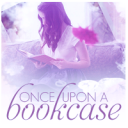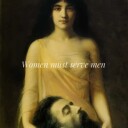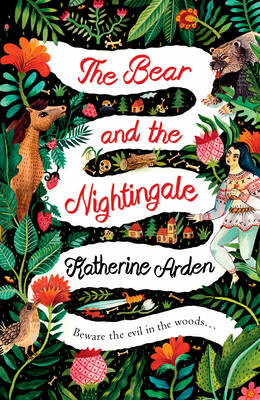
'Frost-demons have no interest in mortal girls wed to mortal men. In the stories, they only come for the wild maiden.'
In a village at the edge of the wilderness of northern Russia, where the winds blow cold and the snow falls many months of the year, an elderly servant tells stories of sorcery, folklore and the Winter King to the children of the family, tales of old magic frowned upon by the church.
But for the young, wild Vasya these are far more than just stories. She alone can see the house spirits that guard her home, and sense the growing forces of dark magic in the woods...
Atmospheric and enchanting, with an engrossing adventure at its core, The Bear and the Nightingale is perfect for readers of Naomi Novik's Uprooted, Erin Morgenstern's The Night Circus, and Neil Gaiman.
- ISBN10 178503104X
- ISBN13 9781785031045
- Publish Date 12 January 2017 (first published 10 January 2017)
- Publish Status Out of Print
- Out of Print 8 April 2021
- Publish Country GB
- Publisher Cornerstone
- Imprint Del Rey
- Format Hardcover
- Pages 336
- Language English
Reviews


Jo
Trigger/Content Warnings: This book features discussion of abortion, death in childbirth, people freezing to death, the dead crawling out of their graves, death by vampire, and sexual assault.
I received The Bear and the Nightingale by Katherine Arden for Christmas, and have been in the mood lately for enchanting, magical fantasy, and I love a retelling, so I picked it for my first read of the year. And it was brilliant!
'"Wild birds die in cages."' (p250)
Marina was weak and fragile when she fell pregnant with her fifth child, and her husband Pyotr and their nurse Dunya begged her to get rid of the baby, sure she wouldn't survive birth. But Marina is the daughter of a Princess who had magic in her blood, and is determined to have a daughter like her mother. Like Pyotr and Dunya feared, Marina died shortly after her daughter was born, living long enough to name her Vasilisa. As time passes, it becomes clear that Vasya is a wild one. She likes to climb trees and explore the forest when she should be at home mending, and always comes home dirty with leaves in her hair, and to a thrashing. It's decided that Vasya is in need of a mother, so Pyotr goes to Moscow to stay with the Grand Prince, his brother-in-law to look for a wife. The Grand Prince's daughter, Anna, is unwell; she's always looking in corners and talking to things that aren't there. To send her away, he gives her to Pyotr, who, unknowing of her condition, agrees to marry her, as he can't refuse the Grand Prince. Anna is very devout, hoping god will save her from the devils she sees. But she is not the only one to see them, Vasya does, too. They are the household spirits of the old ways, who offerings are left to to keep their homes safe. But when a new priest comes to town, he puts the fear of god into the hearts of the people, and they turn their back on the old ways. As the household spirits grow weaker, something else is awakening, something dark and hungry. And there's only one other who can help Vasya save her people - the feared Frost King.
The Bear and the Nightingale is just so gorgeous! It's enchanting and magical, and absolutely puts you under it's spell. With it's beautiful writing, and fairy tale feel, I was absolutely gripped. I've not read a retelling of Vasilisa the Beautiful, the Russian fairy tale, before, so the story is completely new to me. I have no idea whether it sticks close to the original or not, but it was breathtaking. I couldn't put it down, and completely fell in love with Vasya. The folklore that runs throughout, the household spirits, the horses that talk to Vasya, the forest which is welcoming but hides secrets, the claustrophobic snow, the disembodied voice, the umpyry (vampires) - it all works together to create an eerie atmosphere that is completely addictive. And on top of that, it's a historical fantasy set in Russia before it was Russia, so there's the clothing, the food, the langauge, the way royalty worked. It's just so vivid and real, and just so gorgeous.
What I loved about this story was how feminist it was. Vasya is a young woman who is not like most women - that is to say she doesn't behave the way a woman should. She is not meek and quiet, she doesn't smile and simper. She roams the forest on her own, comes home dirty with damaged clothes, she abandons her mending, she voices her opinions and her objections, and she rides a horse, bareback, like no-one else. She is wild and feral, and people call her witch-woman. Women are not free to do as they please, they are to become wives and bare their husbands sons, or they are to go to a convent to become a nun. These are the only options open to women, and though her father loves her, Pyotr fears for her and how she's being spoken about, and so is swayed by the venomous tongue of his wife Anna, who wants rid of her, as does Father Konstantin, who has motives of his own.
'"All my life," [Vasya] said, "I have been told 'go' and 'come.' I am told how I will live, and I am told how I must die. I must be a man's servant and a mare for his pleasure, or I must hide myself behind walls and surrender my flesh to a cold, silent god. I would walk into the jaws of hell itself, if it were a path of my own choosing. I would rather die tomorrow in the forest than live a hundred years of the life appointed me." (p366-367)
She's full of conviction and fire, and she burns so brightly. But she's not a "strong female character." Yes, she's unlike the other women, but that's just her personality. The only reason she fights, the only reason she risks her life is because no-one else can because no-one else knows, no-one else sees. Except for Anna, but Anna believes she is mad or being punished by god. Vasya tries to save her family and her people, even though they criticise her, whisper behind her back, are afraid of her, or despise her, because she's the only one who can. She is frightened, and she's reckless, and doesn't know what to do, but she's got to do something, because who else will? She's brave and courageous, but only until she is not. She's just a teenage girl grappling with things she doesn't fully understand, running towards when she wants to be running away. And I absolutely love her. I love her spirit, and her determination despite her fear, and how she tries. I just think she's brilliant.
I absolutely love this world, and I love Vasya, and I am so excited to continue her story in The Girl int he Tower!

bumblingbookworm

cornerfolds
The Bear and the Nightingale is a book I've been wary of starting for years. I was intrigued by the summary and the fandom but everyone has told me that it's slow and I probably wouldn't like it. The mood struck recently and I decided to go for it, even knowing it would probably take some time to get through. I'm so glad I stuck with it!
Vasilisa lives with her father and siblings in the Russian wilderness. The story begins when she is born and follows her throughout her life. Vasya can see the spirits no one else can - the people say she is a witch. I loved Vasya! I loved how strong and sure of herself she was from a very young age. Although her world is full of misogyny and people set on marrying her off, Vasya never accepts "a woman's lot in life" and forges her own path.
This story is steeped in Russian folklore. Admittedly, I am not well versed on Russian tales, but even I picked up on a few references from other fairy tales. Although this book is indeed slow, I loved all of the mythology throughout. The household spirits and forest spirits were all so interesting and their individual personalities were so much fun to read. The world, while small, is wonderfully built and made me feel like I was there with the family in the harsh Russian winter.
Vasya's life is fascinating, but this 323 page book did take me a couple weeks to get through. I switched from a hardcover to the audiobook once I realized it might take forever. That isn't to say I didn't enjoy the story because I definitely did! It wasn't even a particularly heavy book. It was just long and meandering and at times a bit boring.
I am excited to see what happens in book two of this series! I've heard that it's much faster paced and that there may even be a hint of romance. It was certainly set up, so I'm eager to find out. If you're a lover of intricate fairy tales and folklore, this is a book you definitely do not want to miss.

nannah
2. Everyone downrating this book because it doesn't portray Christians in the positive light you Always Think Christians Should Be Portrayed In ... just ... take a breath. Please don't be ignorant. Christians weren't always the heroes, and it's unfair to expect them to be heroes in every single piece of media on Earth. Especially in books SET in periods when Christians completely destroy other religions.
Like in this book, set in a time where Slavic Pagans with one half of their heart worship the old gods and pray to the spirits of the house and forest, and with the other half are Orthodox Christians. Because ""Christianity won"", history often sides with Christianity. This book takes the Pagan side, which is why people get angry. Read with an open mind, ; the bad guy is actually a pagan god anyway, so .... . But if you're sensitive to this, best skip this one.
Book content warnings
period-accurate misogyny & sexism
A very, Very, VERY loose retelling of the Slavic/Russian fairy tale, "Vasilisa the Beautiful", this book is very well written, especially for a YA novel. I love the storytelling, old-world style it has, and that fits nicely with the subject!
Ugly Vasilisa's mother dies shortly after she's born. And as she grows, her father, Pyotr, discovers he needs another woman around (""to do some women's work!""). He goes to Moscow on business--and it IS intriguing when the book delves into some good ol' Russian politics--and he brings back a husband for one daughter and a wife for himself. But this wife is like Vasilisa; she can see spirits and demons, like the domovoi who helps protect the house, and the vazila, protector of horses. The difference between stepdaughter and stepmother, though, is that Vasilisa has never found anything threatening about these little spirits, and Anna, the new wife, screams and wails at each one (she was raised Christian).
When a famous monk is sent to protect the house from these demons, this family might lose the protection it needs the coming winter ... because this is the winter an actual Slavic demon has prepared to attack the forest surrounding the house. And all it needs, is someone who can See him.
So interesting setup, but I'm not sure I like the direction the author took the source material in ... There was so much someone could do with Vasilisa the Beautiful ... and instead of writing about Baba Yaga (and come on. it's BABA YAGA!! WRITE ABOUT BABA YAGA) ... she was cut to add a sort-of-romance with Death?? No. Give me Baba Yaga or give me ... wait, no (bad joke, sorry!).
I think this could more be a novel inspired by Vasilisa the Beautiful ... but maybe more so Russian folklore in general (I'm REALLY finicky because I love Slavic/Polish paganism. And while I'm not any expert in Russian folklore specifically, I CAN say this was Very Well researched compared to soooo many other Slavic YA books on the market right now. I won't name names.).
As I said before, the writing is really fitting for a retelling (and the cover, wow!). The beginning and the end are stunning as well, but the middle drags. Unfortunately, it's also by far the largest chunk of the book. For a while I'm not really sure what's happening plot-wise; it's just a bunch of PoV's thrown together, and a lot of the same things keep happening without much moving forward. But stay with it till the end, and you see that lovely ending.
I'll read on ... because maybe, just maybe ... there'll be Baba Yaga ...

alisoninbookland
The atmosphere was great. It felt slightly haunting but I wanted more. I always find it interesting how fairy tales are similar no matter where you are, no matter what culture they’re from. Even though I’m not familiar with Russian fairy tales or folklore, there was just something very familiar about the story.
The characters were interesting enough. I always enjoy female characters sticking to their guns and not doing what society is forcing them to do. Vasya is my type of girl. She rebels but not in an Earth-shattering way. Just enough to buck against what she is being forced to do. It was great to see Vasya grow up over the course of the story. I look forward to seeing what happens in future books.
All in all, The Bear and the Nightingale is a story to get lost in and live for a while. Great addition to your Fall/Winter TBR.
For more reviews and bookish adventures, stop by Alison In Bookland.

paperbackjedi

Amber (The Literary Phoenix)
There were some things that Kathleen Gita did extraordinarily well. Her Russian accents and pronunciations are lovely and flowed well, but it was in the narrative itself that she lost me. Her reading is very flat and reminded me of an AI robot in everything except the dialogue. Fortunately, The Bear and the Nightingale is heavy on dialogue and storytelling, so I was able to listen all the way through. The quality of the reader is huge when you are listening to an audiobook, and if they're not just right, it can completely ruin the experience. So I recommend reading a physical copy in this case.
Outside of the technical aspects, I really liked this book. I don't read enough fairytales and retellings outside the western European tradition, and starting this book just as we got our first snowfall here in New England added to the frozen aesthetic. Katherine Arden did a beautiful job of bringing the story to life, from the harsh setting to the mythology around Vasilisa's little home.
A lot of people I follow have noted the lengthy beginning of the novel, including scenes with Vasilisa's mother, as well as her relationship with her oldest brother and sister. I am inclined to agree so far - there's a lot at the beginning of the book that could have been left out for the purposes of this story. At the very least, it could have been provided in a novel. Here's the thing - I've only read The Bear and the Nightingale, so I'm not sure if any of this applies to the other two books in the trilogy. It may end up being important later on, but generally, the first hour or so of this could have been summarized elsewhere, or cut completely.
Beyond the mythology - which I genuinely loved - Arden did an excellent job of bringing her characters to life and making them three-dimensional. This is a constant issue in fairytale retellings, which often lean toward romantic interludes and sparkle in place of depth. Vasilisa is brave, but also reckless, and she was not quite kind, but a tolerable girl. The protagonist is not entirely loveable, and the villains not entirely wicked. It's a great balance, and so frustrating that I could not just flat out hate Anna. Vasilia's sibling relationships, especially that with her brother Alyosha, are wonderful. Sibling relationships in books can be complicated or non-existent, but it always warms my heart when the two are a pair of warriors, side-by-side. Arden captures the older-brother-younger-sister relationship to perfection.
Even though this book had a slow start, I enjoyed it as a whole and am absolutely excited to read The Girl in the Tower. Vasilia's resilience and wildness creates a compelling character, and I am eager to see what adventures she has yet ahead of her.

HekArtemis
I almost gave up on this book. The first 1/4 or so of the story was definitely like a fairytale, it was written like a tale that should be told out loud. That is not immersive in the least, and I don't enjoy non-immersive reading (in fiction). I almost gave up. But I pushed through a little longer, despite a few groans and head desks of annoyance. And thankfully it paid off after Anna and Konstantin joined the story, that's when things got immersive. The beginning was just set up, thank the gods.
If I have to read or hear the words, "It's a womans lot" ever again I might just explode. I don't blame the author, that is historically accurate I am sure, but it really did piss me off. Not necessarily a bad thing though as it made me a bit more invested in the story, wanting to see the MC push past that lot she had been shoved into. Same can be said for the Christian vs Pagan part of the story. Sure, I was enraged by the Christian domination, but that was part of why I had to keep reading. It's kind of fascinating watching a religion implode. It's also fascinating to read about the way Russians probably kept hold of their pagan roots while being Christian, I believe some cultures and places still do this even today.
The fairy side of the story was interesting too, but it was only a small part really until the last part of the book when it all finally comes to a head. I suppose it couldn't be too fairy heavy though. The ideas and lore was interesting, and near the end when you suddenly realise, ohhhh that's why Marina was so skinny and weak at the start of the story, it was well done, even if it was only a minor point.
Overall I think the book was well done, as a retelling it's good. But there were parts that I just couldn't get into, parts that angered me and frustrated me (and I know it's not the authors fault, but it detracts from the story for me personally). And the fact that I was ready to give up on it at one point is also not a good thing. I will maybe read the sequels, but maybe not.

